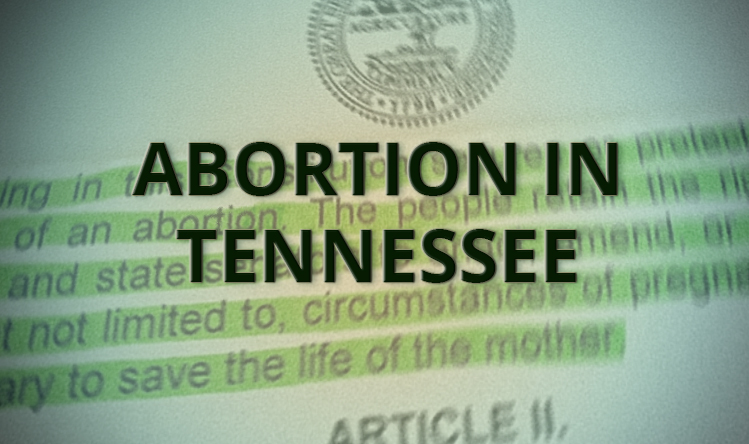
A new law would allow Tennessee to prosecute anyone who helps a minor get an abortion, unless it’s their own child, and it would allow the family to sue them for it.
This kind of policy has been pitched in a few conservative states where abortion is illegal. Supporters call the would-be crime “abortion trafficking,” and say interstate travel is the main issue at hand.
But many of those bills, including Tennessee’s, would also punish adults who help the teenagers obtain abortion pills. Either of those infractions would be a felony. There is also a provision that would allow lawsuits in civil court — for “wrongful death” — against the person who aided the abortion.
Rep. Jason Zachary, a Knoxville Republican, filed House Bill 1895. Sen. Paul Rose sponsored its counterpart, Senate Bill 1971.
During a press availability last week, Rep. Jeremy Faison (R-Cosby) defended the bill. He said it has been misunderstood and unfairly maligned.
“If you are a minor, under 18, nobody other than your parent or your legal guardian can take you out of this state to have an abortion,” he said. “This makes complete sense… That’s all the bill does. It doesn’t do anything else. If a parent chooses to take their child out of this state to pursue that, this bill has nothing to do with it. This bill only takes care of the parents and the children, keeping anybody else — that’s not the legal guardian or the parent — from taking them out of state.”
The wording in the bill is very similar to the wording in an Idaho bill passed last year. Both use the term “recruiting, harboring, or transporting” in the definition of abortion trafficking.
Abortion access advocates challenged Idaho’s ban on abortion assistance for teens in federal court. In November, U.S. District Magistrate Debora K. Grasham ordered Idaho to hit the brakes on enforcing the law. She agreed with the abortion access advocates, saying the law raises constitutional problems.
One of those problems: First Amendment rights.
“Plaintiffs’ activities aimed at providing information, support, and assistance about reproductive health options, including legal abortion services, to pregnant individuals constitute protected speech,” the ruling reads in part.
She also wrote that there are due process concerns because Idaho’s law is vague about what counts as criminal behavior. Especially because the term “recruiting” isn’t defined. Like many abortion laws, the lines are blurry. Can an adult tell a teen where the nearest abortion clinic is? Which states still allow abortion? Can adults face legal troubles if they donate to an abortion fund that ends up aiding a minor? All of this is left to interpretation.
Grasham wrote that this was a problem because it creates an opportunity for arbitrary enforcement.
During the media availability, a reporter brought up this lawsuit and asked Rep. Faison if Tennessee’s proposal was written differently to avoid similar legal challenges. Faison said he wasn’t familiar with the Idaho lawsuit.
Tennessee is one of the 14 states that have banned abortion without an exception for rape and incest, according to a report by the Kaiser Family Foundation. Eight states with abortion bans do have that exception.

